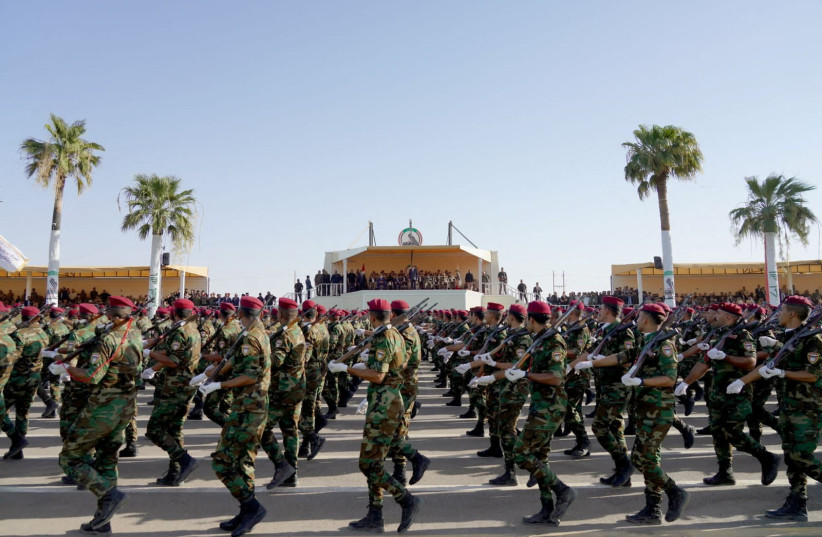Iranian-backed militias in the city of Kirkuk have killed several Kurds and continue to threaten more attacks against Kurds in the city. Kirkuk is controlled by the Iraqi government, which wrested the city back from Kurdish control in 2017. The Kurdistan autonomous region is located north of the city, and the city itself contains diverse groups of people including Kurds, Turkmen, and Arabs.
Historically, it has been disputed between Kurdish forces and the Iraqi government, and in recent years Iranian-backed militias have played a more aggressive role in the city. Iran uses its militias to fire rockets to target gas fields on the road to Sulaymaniyah that are controlled by the Kurds.
According to reports from Erbil in the Kurdistan region, a Kurdish protester named Aram Mustafa was murdered by gunshots fired by the Iranian-backed Popular Mobilization Units in Kirkuk on Saturday. Rudaw media said that “Kurdish leaders issued urgent calls for calm as the streets of Kirkuk descended into violence on Saturday and three people lost their lives.”
The report says that the current wave of protests and violence are due to a complex decision taken by Baghdad. Iraq had ordered an Iraqi military Joint Operations Command (JOC) to move out of a building that had been used by the Kurdistan Democratic Party (KDP). Iraqi Prime Minister Mohammed Shia’ al-Sudani had indicated the Kurdish KDP could return to Kirkuk for the first time since 2017.
What are the KDP and PUK?

Now that Iraq and the KDP are discussing Kirkuk apparently, the Iranian-backed militias want to threaten Kurds there. “Dozens of protesters, mainly members of the Iran-backed Asaib Ahl al-Haq militia and their supporters, have set up tents near the JOC headquarters since Sunday evening in protest of a KDP return. They have blocked access to the highway and vowed to continue their demonstration until Sudani retracts his decision,” Rudaw reported.
Security forces in the city have now put in place a curfew but hundreds of armed men linked to the PMU have been parading in the streets. One Kurdish civilian named Hawkar Abdullah was also said to have been killed. Kurdistan Region President Nechirvan Barzani has also called for calm and for safety for people in the city. PUK leader Bafel Talabani has also put out a statement saying that the PUK will not tolerate the shedding of blood in the city: “We condemn vehemently any efforts to harm brotherhood and coexistence in Kirkuk. As quickly as possible, those responsible for killing and injuring our sons must be apprehended and brought to justice,” Talabani said, echoing similar sentiments from the KDP Barzani leadership.
Kurdish Peshmerga have been deployed to the furthest position on the road to Kirkuk from Erbil that the Kurds control. This is the town of Pirde, which was a scene of intense fighting in 2017 when the Iraqi forces, backed by the PMU, tried to continue their march toward Erbil. Kurdish forces, including the PAK, stopped the advance at the time.
Kurdish villagers around Kirkuk have complained of harassment for years under threats from militias, Arab tribes, and Iraqi government forces. This is part of a historic campaign of ethnic cleansing against Kurds by Iraqi regimes dating back to the Saddam era. Whereas Saddam stoked Arab nationalism under the flag of the Ba’ath Party and encouraged tribes to attack Kurds, the current system in Iraq has enabled Iranian-backed militias to threaten Kurds under banners of sectarianism. ISIS cells are also still active west of Kirkuk in the mountains. Recently a French soldier was killed supporting Iraqi forces based at the K-1 base near Kirkuk. This means the area is very complex and the current tensions undermine stability.
